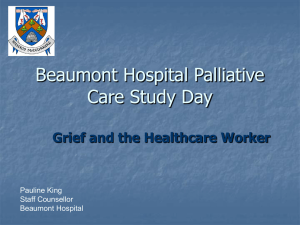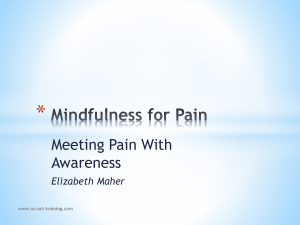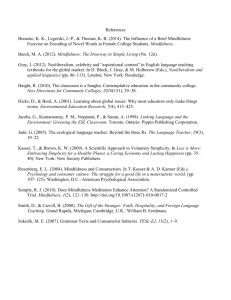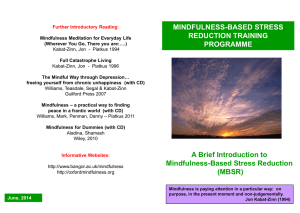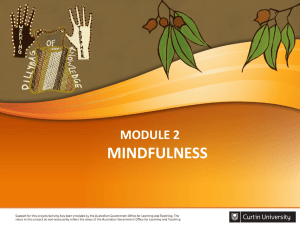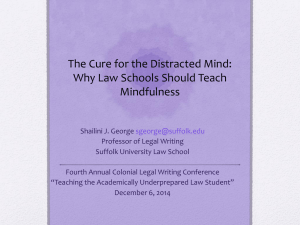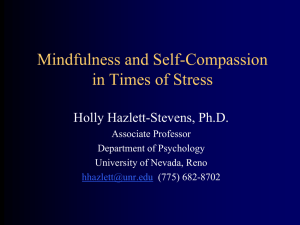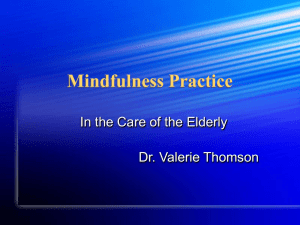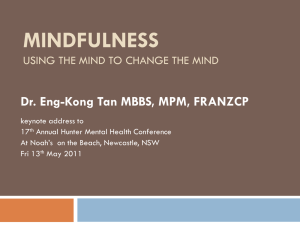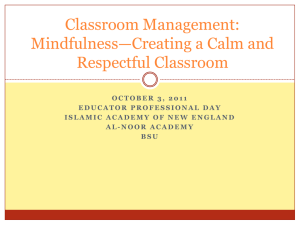Mindfulness - Insight – University of Gloucestershire
advertisement
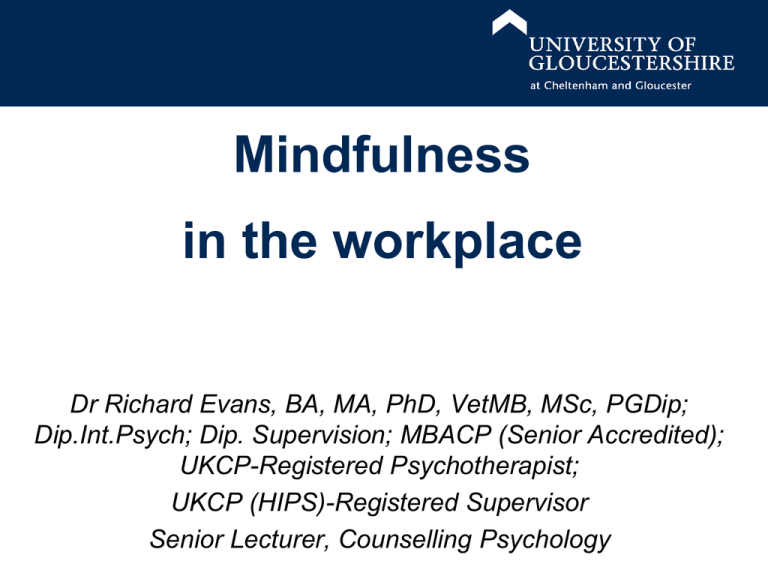
Mindfulness in the workplace Dr Richard Evans, BA, MA, PhD, VetMB, MSc, PGDip; Dip.Int.Psych; Dip. Supervision; MBACP (Senior Accredited); UKCP-Registered Psychotherapist; UKCP (HIPS)-Registered Supervisor Senior Lecturer, Counselling Psychology What is mindfulness? “Mindfulness is the awareness that emerges through paying attention on purpose, in the present moment, and non-judgementally to things as they are” Williams, Teasdale, Segal & Kabat-Zinn (2007, p.47) What is mindfulness? • An essentially meditative practice (Kabat-Zinn, 1990) • It’s NOT esoteric, New Age or spiritual • A powerful means for enhancing wellbeing • Strong evidence-base, over 30 years A little experience of being mindful • The breathing space…. Evidence-base • Over 600 trials demonstrate effectiveness in a wide range of circumstances (MBSR, MBCT, MBCP…). • A NICE recommended treatment for preventing recurrence of depression, the management of severe pain and chronic illness. Mindfulness in the workplace • Mindfulness programmes introduced by, for example: Apple; Google; GlaxoSmithKline;The Home Office; KPMG; transport for London Google an interesting case in point. 1st programme in 2007- continuously since Why workplace mindfulness programmes? • • • • • • • More present workforce Improved wellbeing Improved productivity Improved creativity Improved self-regulation Less absenteeism Better communication & interpersonal relating (Baer, 2003; Chu, 2010; Shapiro & Schwartz, 2000) How implemented? • Needs established personal practice to be most effective (Kabat-Zinn, 1990, Williams et al, 2007) • Usually offered as a structured 8 week programme – 8 x 2 hour sessions plus home practice • Shorter introductions possible What can we offer to help you? • University-based workshops • In house training ranging from half day introductions to full 8 week programmes • Collaborative working and research • Other possibilities? References • Baer, RA (2003) Mindfulness training as a clinical intervention: a conceptual and empirical review. Clinical psychology: science and practice, 10 (2) 125-143. • Chu, L-C (2010) The benefits of meditation vis-à-vis emotional intelligence, perceived stress and negative mental health. Stress and health, 26, 169-180 • Kabat-Zinn, J (1990) Full catastrophe living. New York, NY: Delta) • Shapiro, SL, & Schwartz, GE (2000) Intentional systemic mindfulness; an integrative model for self-regulation and health. Advances in mind-body medicine, 16, (2) 128-134. • Williams, M, Teasdale, J, Segal, Z & Kabat-Zinn, J (2007) The mindful way through depression. New York, NY: Guildford Press.
